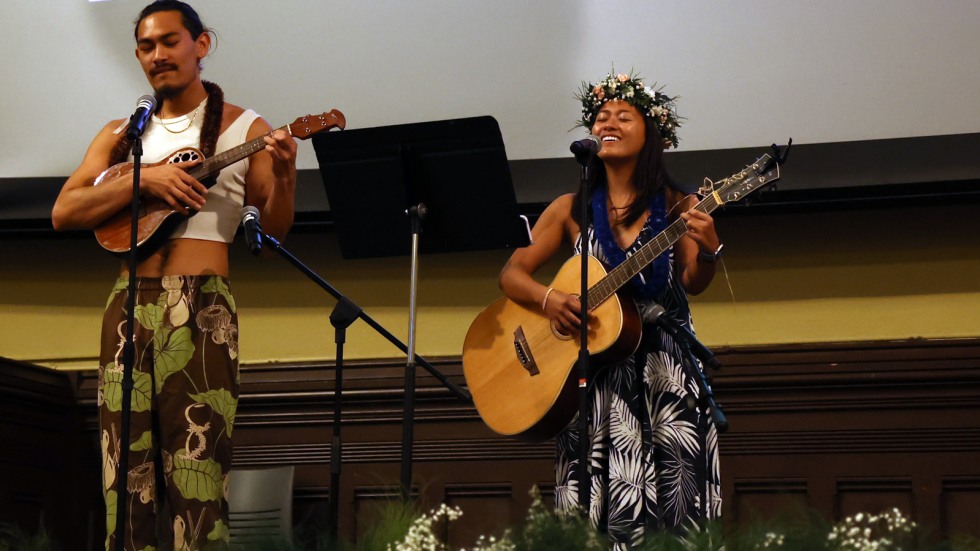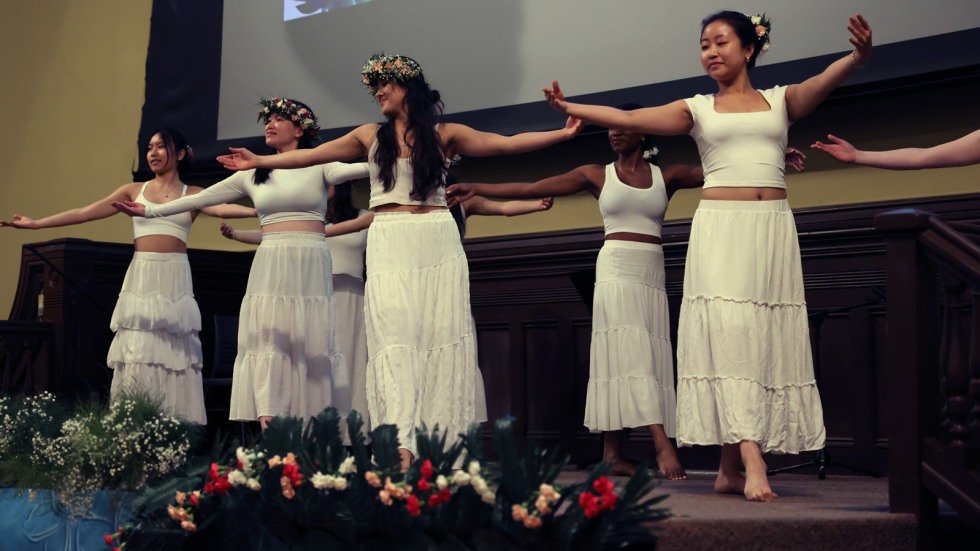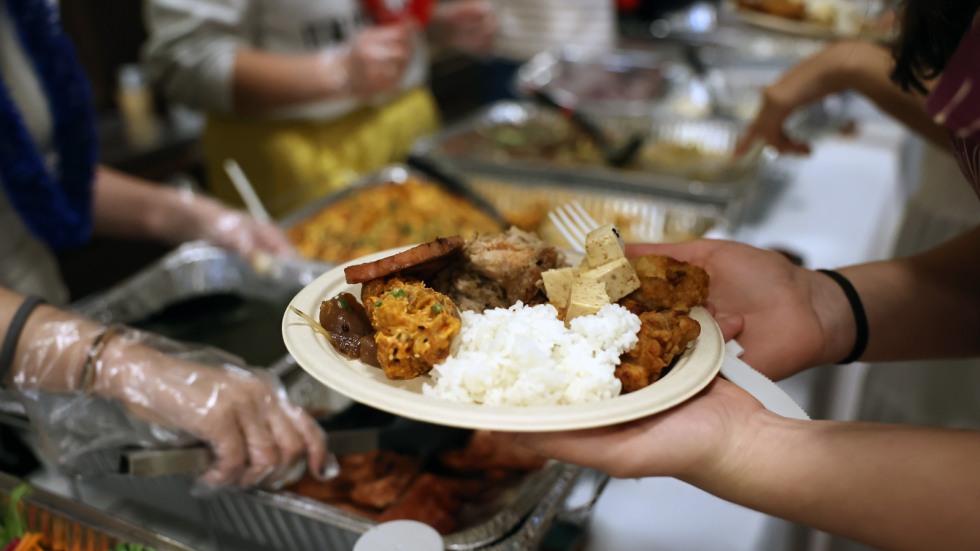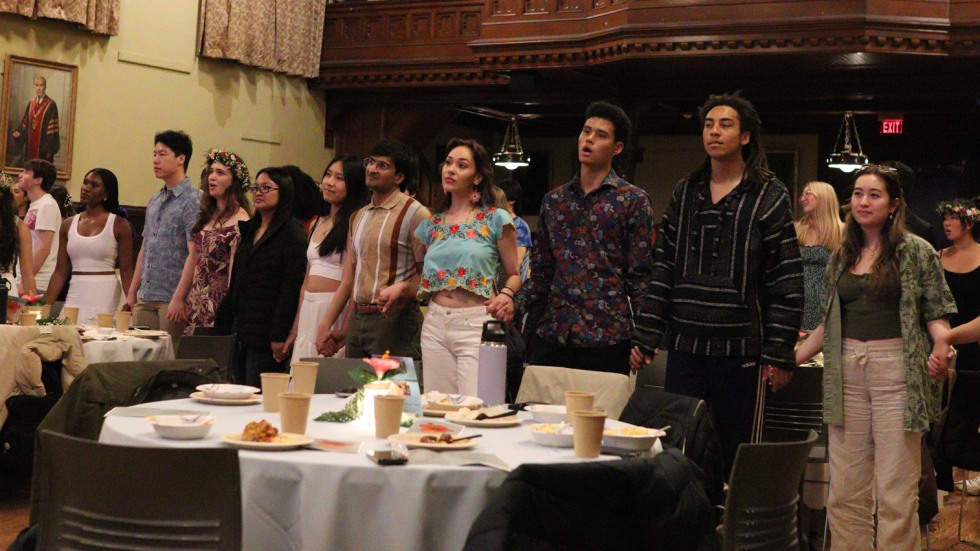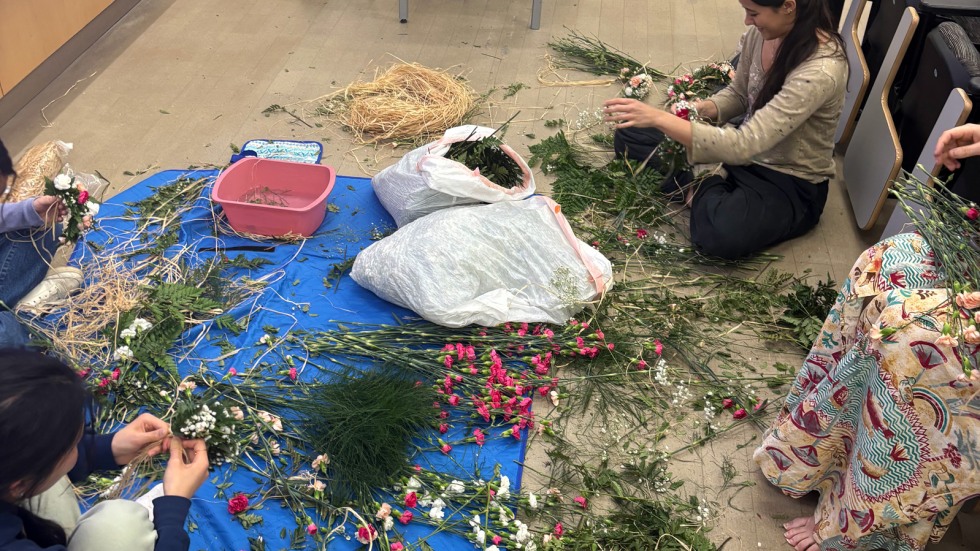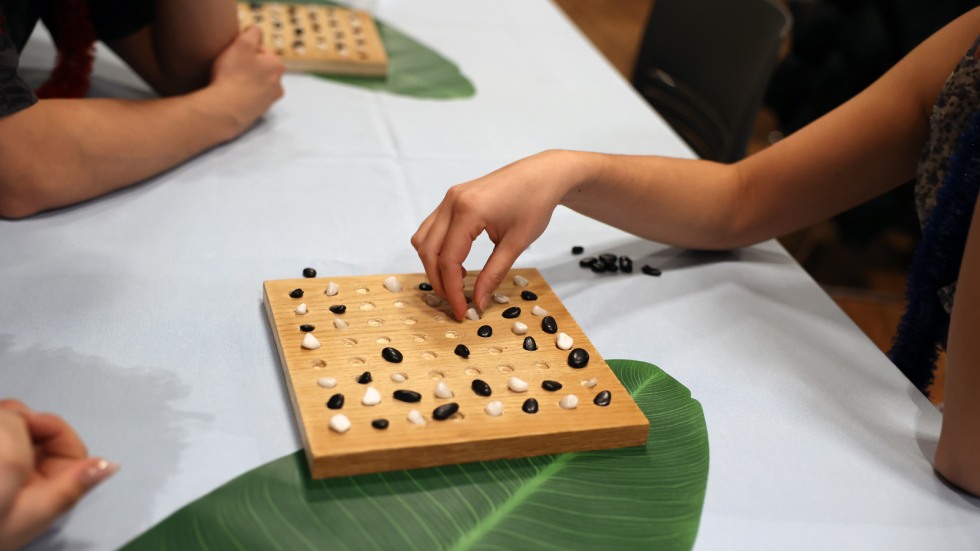PROVIDENCE, R.I. [Brown University] — When Hawaii@Brown co-coordinator Kawehi Keli’i blew into a conch shell three times in Sayles Hall on Brown’s campus, it was a moment decades in the making.
The sound of the conch had been absent from Brown’s campus for more than 20 years, but it made a triumphant return on a warm spring night in April, as more than 100 people gathered to celebrate the revival of Hawaii@Brown’s Spring Lū’au.
It was a particularly sweet moment for fellow co-coordinator Maikekai Pedus, as the conch used to kick off the event belonged to her grandmother, who had attended community lū’aus at Brown before Pedus was even born.
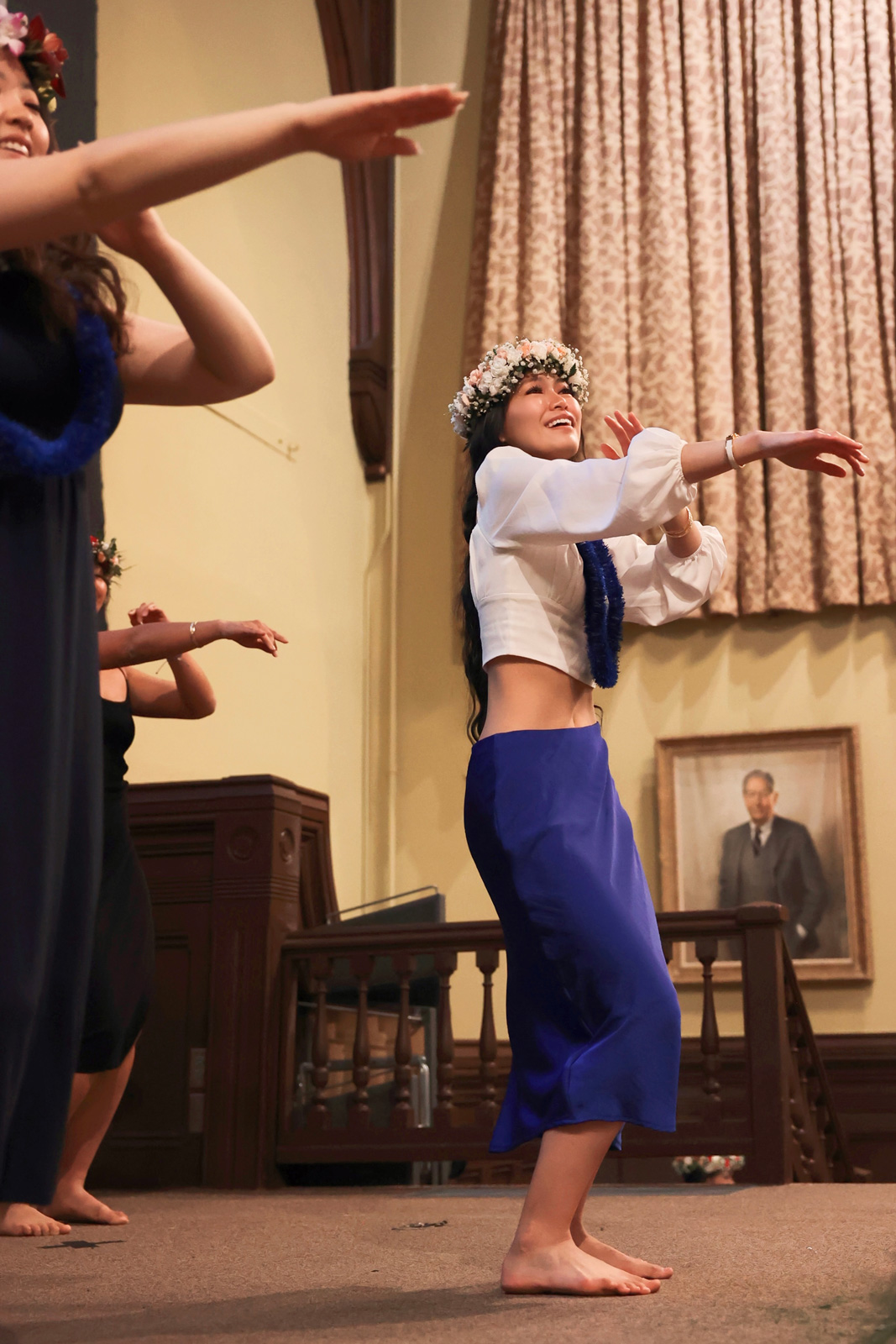
Through the night of music, dance, games and more, organizers Keli’i and Pedus said they wanted to educate the community on the history, traditions and rituals associated with Kānaka Maoli, or Native Hawaiian, culture.
“This was a way to show people, ‘Hey, we’re real people, and this is our culture,’” said Pedus, a sophomore concentrating in critical Native American and Indigenous studies. “It’s not fake grass skirts and coconut bras.”
After blowing the conch and offering a brief introduction to Hawaii@Brown, Keli’i led the audience in oli — a chant meant to honor the gods, give thanks and welcome people into a new space. Participants filled their plates with both traditional Kānaka Maoli and Hawaiian foods before listening to a presentation by Pedus on the history and cultural significance of lū’au, and a summarized version of the Hawaiian creation story.
“Although the history is very sad, people were paying attention and were willing to learn,” she said. “That made us really happy.”
Dancers in Hawaii@Brown and the student organization Fusion Dance Company performed four distinct hula performances, some of which Keli’i choreographed herself. The performances were bookended by a seven-song ukulele and guitar jam session by Brown senior Kalikoonāmaukūpuna Kalāhiki and first-year student Skyler Recel-Chang.
When the duo started “Hawai’i Aloha,” an anthem revered by Native Hawaiians and Hawaiian residents alike, Keli’i said she knew it would be one of the most special moments of the night.
“We had everyone stand up and hold hands with each other, swaying along while they played the song,” she said. “It was so beautiful to see, especially out here on the East Coast.”
Keli’i and Pedus said every aspect of the event was a labor of love, from table card numbers that were written in Hawaiian and homemade lei po’o (lei crowns of fresh flowers that the group made the night before) to the organization and teaching of the Makahiki games, a collection of activities and sports historically held in honor of the Hawaiian god Lono.
It was a labor of love they would undertake again in a heartbeat. This year, the club was only able to accommodate 110 attendees, and more than 70 people were on a waiting list after free tickets sold out within hours. Next year, they hope to expand the lū’au to enable many more people to attend.
“It felt like we were connecting back to our ancestors,” Keli’i said. “I was so proud of everyone. It was so wholesome, and the community was warm and loving.”
